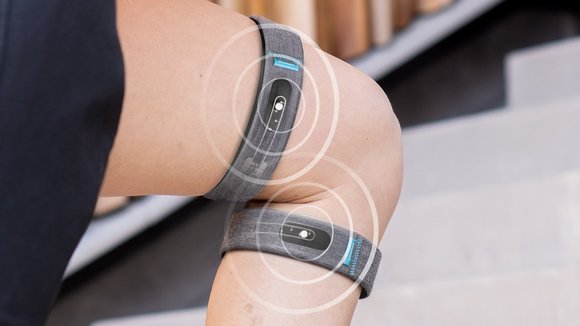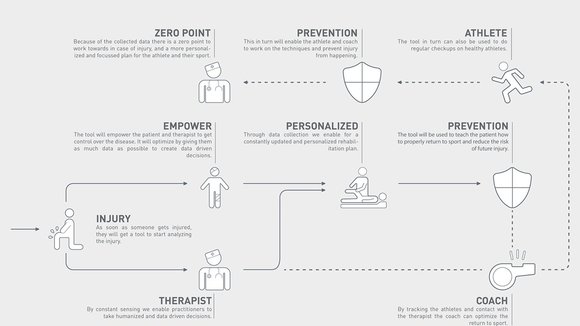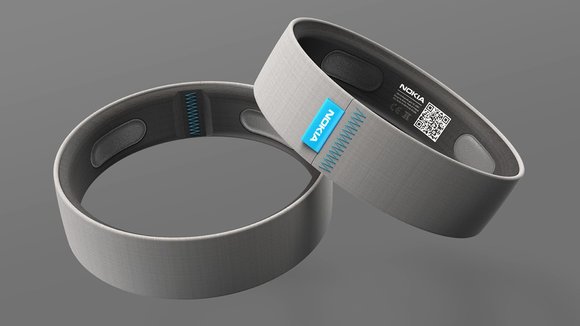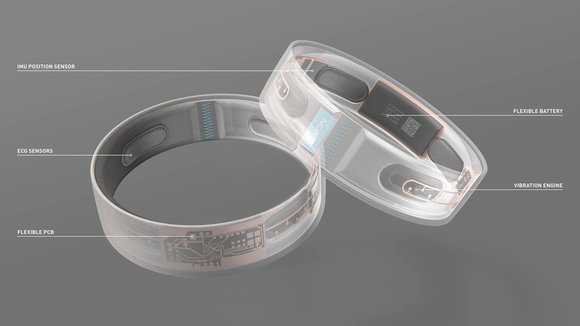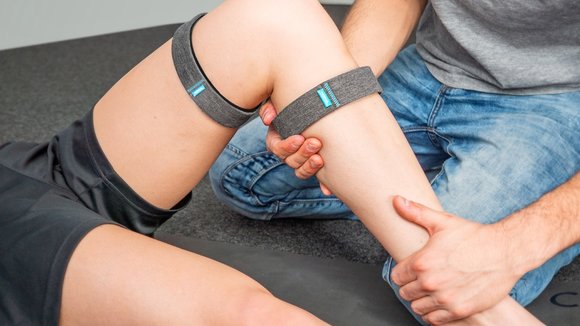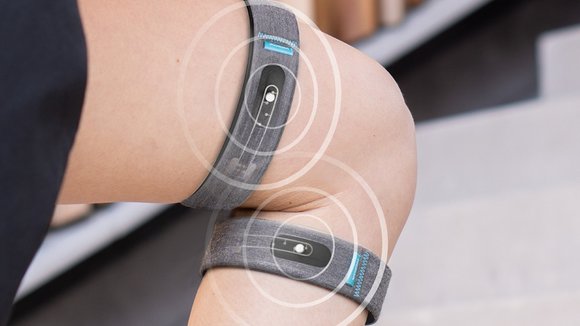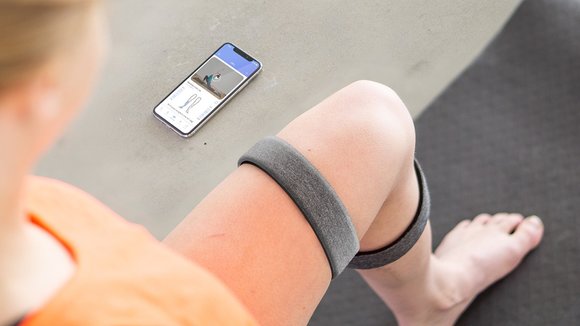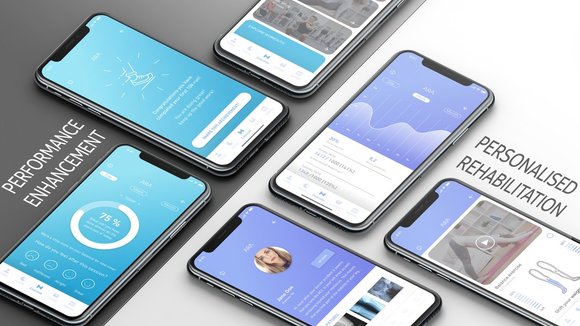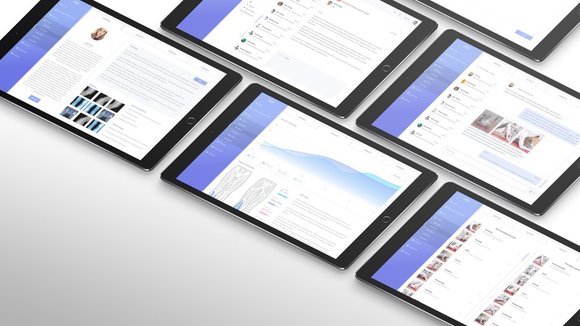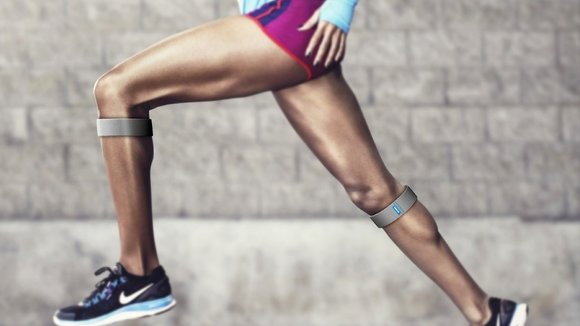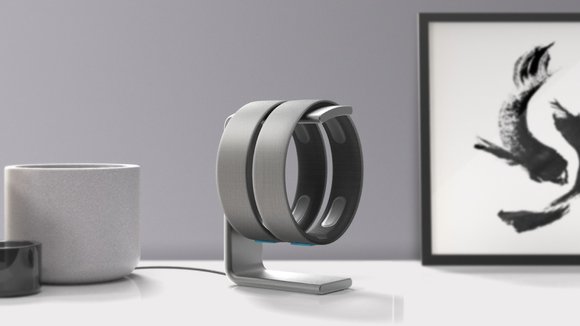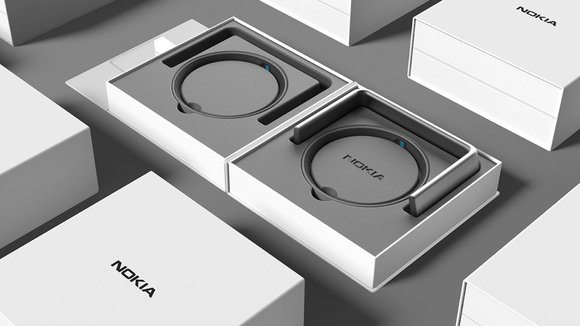1/16
A Smart Rehabilitation Device
For athletes and sport enthusiasts alike, an injury can drastically hinder their ability to partake in the activity that they love, and staggeringly, they are 400% more likely to injure themselves again after the initial injury, the prospect of this may lead to uncertainty and a loss of enjoinment.
Ara is a smart rehabilitation device that, using a plethora of senses, provides the user’s therapist with smart insights and increased amounts of data to allow them to make a well informed and personalized decision, this speed up the recovery process. An app allows the user to track their progress in real time and advise them on taking breaks during exercises or stimulate the injury to avoid the joint becoming stiff.
As Ara is designed to be worn always, the minimal design and thin form allows it to sit virtually unnoticed beneath clothing, and the soft-touch fabric combined with the flexible internal components makes it comfortable to wear!
Designer:
As soon as an individual gets injured, he/she receives Ara, who starts to monitor the injury. This information is then shared with the therapist which enables him/her to take data driven decisions and inform the patient about their injury and how to get better. Through this, patients will receive a personalised rehabilitation experience which ends with teaching individuals how to prevent the injury from happening again. Furthermore this device can be used by individuals and athletes who then reduce the risk of injuries from happening by working on preventive training. All this data can then be collected in a general database which in turn helps healthcare providers get a better understanding of the injury and optimise the rehabilitation processes for each individual.
Through constant sensing Ara provides an increased amount of insights for the therapists to take humanized and data driven decisions. Which results in a more informed, easier, faster and reassured rehabilitation experience for the patient. The concept consists of three main items, a bracelet (to monitor the patients injury), an app (to communicate and adapt the therapy) and a charging unit. Since patients will be wearing Ara throughout the biggest part of the day, they do not wish to wear technology visually, but just get the benefits. Because of this a minimal design was created on the outside of the product.
The patient app empowers patients to take an active role into their own rehabilitation. It will show users their medical information, such as the facts about their injury, and how it has evolved over time. It will show the activity of the day and warn them if they should let the knee rest for a while, or stimulate them to do more, to make sure the knee doesn’t turn stiff. Through the contact page patients and therapists are able to communicate about the injury in a secure way and also share photos and videos when they would like more precise feedback. By showing the improvement over time patients will be motivated to continue their training and the app will allow patients to celebrate and share achievements with their environment.
LIVE FEEDBACK
One of the biggest problems with rehabilitation is to know when you have done enough exercises for the day. If patients push themselves too far, they risk further injuring the knee, instead of rehabilitating it. To ensure that patients don’t push themselves too far Ara has several vibration engines integrated into the bracelet. These will vibrate when direct feedback is needed, for example when they need to take a break. Ara comes with an App that will give life feedback to patients when performing these exercises and will serve as their personal rehabilitation coach.
Nowadays the therapist sees patients roughly once a month. A large part of these meetings consists of the therapists performing checks to see how the injury is evolving. By sharing the information that Ara collects with the therapists this will no longer be needed and the time can be spend on the treatment. Furthermore the application allows the therapists to perform remote monitoring of the patients and to adapt their therapy when this is needed. Ara will share the results and make recommendations but the final decisions stays with the therapists.
Ara can also be used by individuals who wish to reduce the risk of injuries from happening in the first place. This is done by using one bracelet on each leg when doing exercises. This since the balance and motion of the legs in comparison is more important then to get precise data of the knee. The performance app will teach people the proper techniques and methods adapted to their desired activities and built. For example when you are a basketball player it will focus more on your technique of landing whilst for soccer a quicker reaction time of the muscles is more important.
Ara is designed with sustainability in mind. This means that it is developed not only thinking of what happens to the product in this lifecycle but also its next. Through the use of a QR code Ara is linked to a product passport which shows how to disassemble to product and gain back its materials and components.
By simply cutting the blue thread on the outside of the product and polling on the blue tag, the product is disassembled in all the different components it contains. The textiles can be composted and used for their biological nutrients and the sensors and technology slab can be easily recycled by just melting the plastic outer layer of the components.
The biggest advantage of using a material passport with the product is that we can close the information loop in the supply chain, and the lack of quality assurance. The material passport helps to prepare the way for products and projects to fit within the circular economy. Material passports can be used by a broad range of stakeholders: from product manufacturers (know how the product is made and where everything is located), building/system owners and users (knowhow of what you own, how much the product is actually worth), to disassembly companies (how to recycle and disassemble), and material suppliers (how to use materials to enable them to up-cycle).
Traditionally when we think of sustainability, we consider that products will be more expensive to produce. With Ara we prove that it is profitable to be sustainable. By thinking of sustainability form the very beginning the assembly and recovery process of the product have been optimised, and since companies will be able to reuse all the materials and components they will gain back value from what otherwise would be considered waste.
发布于2019-02-27
设计师
Rik Oudenhoven
颜色
